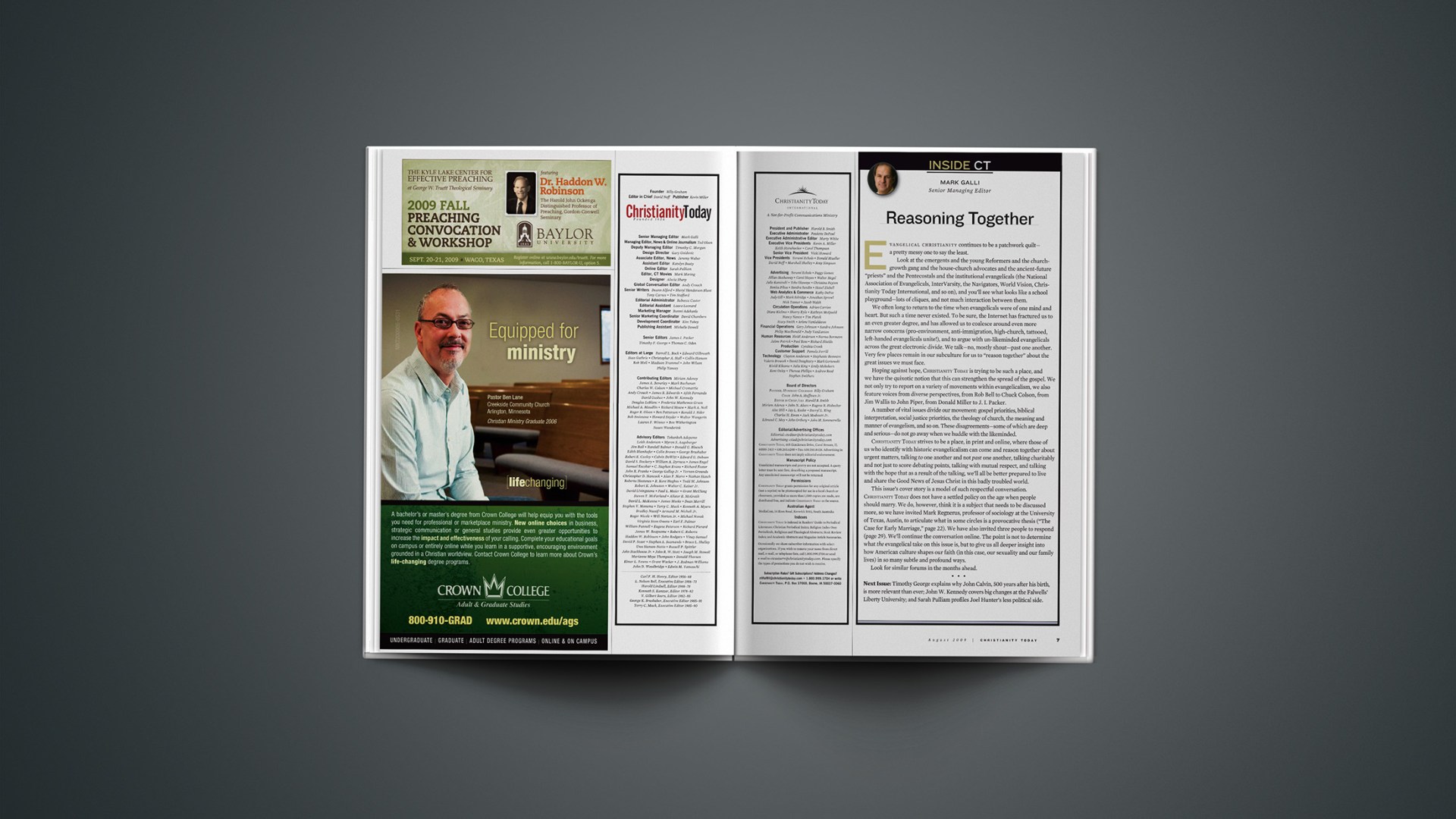Evangelical Christianity continues to be a patchwork quilt—a pretty messy one to say the least.
Look at the emergents and the young Reformers and the church-growth gang and the house-church advocates and the ancient-future “priests” and the Pentecostals and the institutional evangelicals (the National Association of Evangelicals, InterVarsity, the Navigators, World Vision, Christianity Today International, and so on), and you’ll see what looks like a school playground—lots of cliques, and not much interaction between them.
We often long to return to the time when evangelicals were of one mind and heart. But such a time never existed. To be sure, the Internet has fractured us to an even greater degree, and has allowed us to coalesce around even more narrow concerns (pro-environment, anti-immigration, high-church, tattooed, left-handed evangelicals unite!), and to argue with un-likeminded evangelicals across the great electronic divide. We talk—no, mostly shout—past one another. Very few places remain in our subculture for us to “reason together” about the great issues we must face.
Hoping against hope, Christianity Today is trying to be such a place, and we have the quixotic notion that this can strengthen the spread of the gospel. We not only try to report on a variety of movements within evangelicalism, we also feature voices from diverse perspectives, from Rob Bell to Chuck Colson, from Jim Wallis to John Piper, from Donald Miller to J.I. Packer.
A number of vital issues divide our movement: gospel priorities, biblical interpretation, social justice priorities, the theology of church, the meaning and manner of evangelism, and so on. These disagreements—some of which are deep and serious—do not go away when we huddle with the likeminded.
Christianity Today strives to be a place, in print and online, where those of us who identify with historic evangelicalism can come and reason together about urgent matters, talking to one another and not past one another, talking charitably and not just to score debating points, talking with mutual respect, and talking with the hope that as a result of the talking, we’ll all be better prepared to live and share the Good News of Jesus Christ in this badly troubled world.
This issue’s cover story is a model of such respectful conversation.
Christianity Today does not have a settled policy on the age when people should marry. We do, however, think it is a subject that needs to be discussed more, so we have invited Mark Regnerus, professor of sociology at the University of Texas, Austin, to articulate what in some circles is a provocative thesis (“The Case for Early Marriage,” page 22). We have also invited three people to respond (page 29). We’ll continue the conversation online. The point is not to determine what the evangelical take on this issue is, but to give us all deeper insight into how American culture shapes our faith (in this case, our sexuality and our family lives) in so many subtle and profound ways.
Look for similar forums in the months ahead.
Next Issue: Timothy George explains why John Calvin, 500 years after his birth, is more relevant than ever; John W. Kennedy covers big changes at the Falwells’ Liberty University; and Sarah Pulliam profiles Joel Hunter’s less political side.
Copyright © 2009 Christianity Today. Click for reprint information.
Related Elsewhere:
This article was posted with “The Case for Early Marriage,” “Restless, Reformed, and Single,” and “Weighing Young Weddings” as part of Christianity Today’s August cover package.










